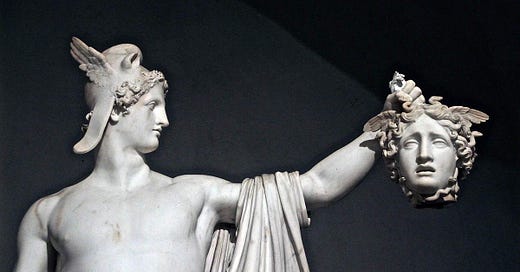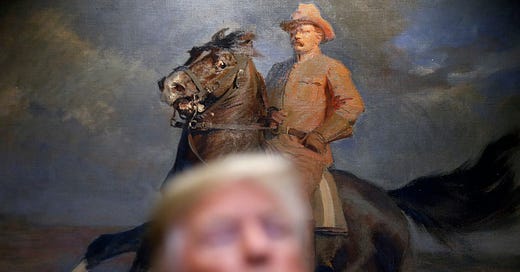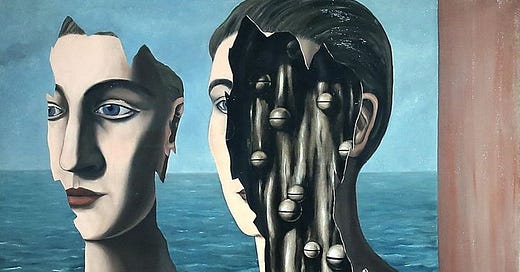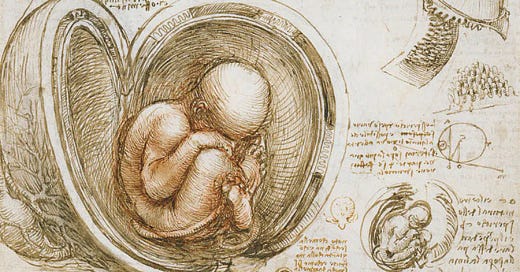“Everywhere and always, when human beings either cannot or dare not take their anger out on the thing that has caused it, they unconsciously search for substitutes, and more often than not they find them.”
― René Girard, The One by Whom Scandal Comes
J.D. Vance entered the Munich Security Forum not with a whisper, but with a splash—his arrival both controversial and inevitable. This was not just another gathering of Western leaders reassuring themselves of their shared purpose. It became a moment of reckoning, a collision between expectation and reality. The weight of unity pressed against the undercurrents of discord, exposing fractures too deep to ignore.
A Vice President of the United States does not typically arrive to disrupt the "vibe" of the conference—yet disrupt it he did. Not by choice, but by necessity. The usual pleasantries could not conceal the widening gap between what Europe expects and what it can realistically demand. The continent calls on America to spend more, to commit more, to shoulder more responsibility for collective security. Yet even as it demands strength, its own foundation trembles.
Europe’s real problem, Vance suggests, is not just external threats but its own complacent ruling class—a late Roman Republic disease. Like Emperor Philip the Arab, who mistook grand spectacles for strength, European elites see ceremonies like MSC as proof of stability. But Rome’s illusions crumbled under invasions, civil wars, economic collapse, and plague. Europe, too, indulges in self-congratulation while neglecting the hard power needed to survive.
This complacency is particularly dangerous in the face of emerging and imminent threats.
Enemies of Europe—both internal and external—thrive on dysfunction. They exploit the contradictions in European governance, using them to undermine democracy, weaken social cohesion, and push their own narratives of Western decline. Vance points to a glaring example: while some are jailed for tweets, gang rapists walk free. This kind of moral and legal inversion erodes public trust in institutions, fuels political instability, and provides an open door for foreign adversaries to manipulate societal divisions.
Russia, for instance, has repeatedly weaponized these inconsistencies in its state-controlled media. When European governments crack down on speech—arresting citizens for controversial social media posts—while failing to adequately punish violent criminals, they create an image of weakness and hypocrisy. Moscow seizes on this, portraying European democracies as failing states that repress their own people while allowing lawlessness to fester.
Similarly, Islamist extremists exploit these contradictions to radicalize individuals, portraying Western societies as corrupt, unjust, and incapable of protecting their own people. They argue that the West prioritizes ideological policing over real justice, fueling resentment among marginalized communities and reinforcing narratives of oppression. This perception is not without consequence—it translates into increased recruitment for extremist networks, the erosion of social trust, and a growing sense of alienation among disaffected populations.
A stark symptom of this dysfunction is the rise of antisemitism. As European governments think they’re juggling free speech and social cohesion, they often ignore growing hostility toward Jewish communities. Islamist extremists exploit this, using antisemitic rhetoric to deepen divisions, justify violence, and fuel resentment. This toxic mix of radicalization, state inaction, and moral inconsistency weakens Europe from within, emboldening both foreign adversaries and domestic extremists who thrive on instability and fear.
At its core, this dysfunction is not just a security risk—it is an existential challenge. A society more focused on silencing dissent than addressing real threats is a society that invites its own decline.
J.D. Vance did not simply make a splash at the Munich Security Forum. He shattered a ritual of self-reassurance—a forum where European elites convince themselves that everything is under control. But control is an illusion without power, and power is meaningless without the Will to use it.
The question is not whether Europe can survive, but whether it will choose to do what survival requires.
















Very insightful Zineb. I'm still angry (though not surprised) Trump is about to abandon Ukraine, but hopefully Europeans will learn some lessons from Vance's speech.
Is Europe an idea and a vibrant part of the West or is it just Geography? Vance wants to rescue Europe from just being another piece of contested real estate. It is heading to the status of "burned out cinder" of the West, just a remnant worth defending only to deny it to Russia, not as something valuable in itself.